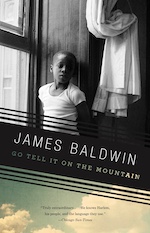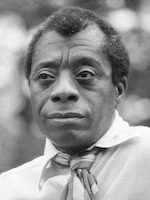 The Book Beat reading group selection for February is Go Tell It on the Mountain by James Baldwin. We will meet virtually online via Zoom on Wednesday, February 26 at 7:00 p.m.
The Book Beat reading group selection for February is Go Tell It on the Mountain by James Baldwin. We will meet virtually online via Zoom on Wednesday, February 26 at 7:00 p.m.
The Zoom link will be sent on the afternoon of the meeting to anyone interested in attending.
The Book Beat reading group features international works in translation and more, and discussions are free and open to the public.
Please call (248) 968-1190 or email bookbeatorders@gmail.com for more information.
Books are in stock and discounted 15%.
One of the most brilliant and provocative American writers of the twentieth century chronicles a fourteen-year-old boy’s spiritual, sexual, and moral struggle of self-invention in this “truly extraordinary” novel (Chicago Sun-Times).
Baldwin’s classic novel opened new possibilities in the American language and in the way Americans understand themselves. With lyrical precision, psychological directness, resonating symbolic power, and a rage that is at once unrelenting and compassionate, Baldwin tells the story of the stepson of the minister of a storefront Pentecostal church in Harlem one Saturday in March of 1935. Originally published in 1953, Baldwin said of his first novel, “Mountain is the book I had to write if I was ever going to write anything else.”
 James Baldwin (1924-1987) was an essayist, novelist, and playwright whose eloquence and passion on the subject of race in America made him one of the most important voices of the 20th century. A writer of exceptionally clear and psychologically penetrating prose, Baldwin addressed race relations with deft complexity and incisive anger. He was also one of the first Black writers to include queer themes in fiction, notably in Giovanni’s Room (1956), writing with a frankness that was highly controversial at the time. His works include the novels Go Tell It on the Mountain (1953) and Another Country (1962), the plays The Amen Corner (1954) and Blues for Mister Charlie (1964), and the essay collections Nobody Knows My Name (1961) and The Fire Next Time (1963).
James Baldwin (1924-1987) was an essayist, novelist, and playwright whose eloquence and passion on the subject of race in America made him one of the most important voices of the 20th century. A writer of exceptionally clear and psychologically penetrating prose, Baldwin addressed race relations with deft complexity and incisive anger. He was also one of the first Black writers to include queer themes in fiction, notably in Giovanni’s Room (1956), writing with a frankness that was highly controversial at the time. His works include the novels Go Tell It on the Mountain (1953) and Another Country (1962), the plays The Amen Corner (1954) and Blues for Mister Charlie (1964), and the essay collections Nobody Knows My Name (1961) and The Fire Next Time (1963).
